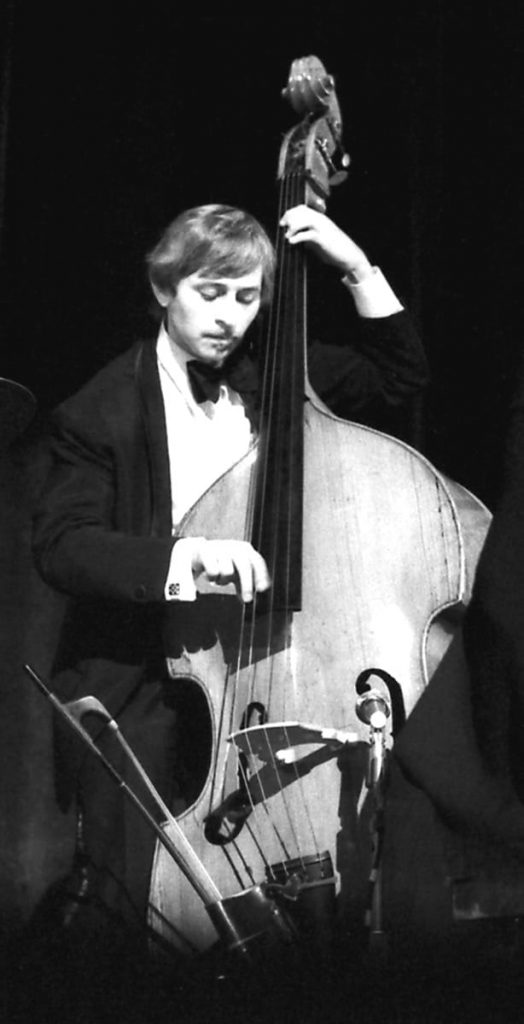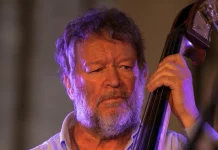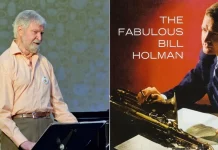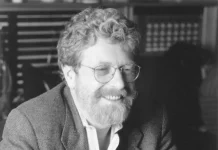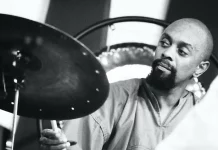The consummate and ubiquitous bassist George Mraz died on 16 September, reportedly in Prague. He was 77. His death, possibly from pancreatic cancer, was confirmed by his wife, pianist Camilla Mraz on social media.
Born on 9 September 1944, in Pisek in what is now the Czech Republic, Mraz played the violin at the age of seven and then began playing jazz in high school after hearing Louis Armstrong on Voice of America radio broadcasts. In 2009 he recalled: “I couldn’t figure out the music and wondered how someone with a voice like Satchmo’s got away with singing like that.
“The music made me feel good, and I liked it better than a lot of other things I had heard. That’s when I started looking into jazz.” Not surprisingly, he was also impressed by fellow bassists Scott LaFaro, Ron Carter, Paul Chambers and Ray Brown.
Mraz attended the Prague Conservatory from 1961-66, and played clubs and concerts across Europe, as well as working with visiting American musicians including trumpeters Benny Bailey and Carmel Jones and pianist Mal Waldron. In 1968 he moved to Boston to take up a scholarship at the Berklee School (now College) of Music, and a year later received a call from Dizzy Gillespie inviting him to join his small group in New York.
From that time on, Mraz was in great demand as an agile and inventive player, and appeared with such stellar figures as Stan Getz, Thad Jones & Mel Lewis, Zoot Sims, Carmen McRae, Clark Terry and pianists Oscar Peterson, Hank Jones, Bill Evans, Toshiko Akiyoshi and Tommy Flanagan (with whom he had a long and fruitful collaboration). In 2000 The Boston Herald noted that Mraz “has remained as in-demand as any bassist in jazz, particularly among piano players”.
His exceptional qualities as a jazz bassist were recognised and applauded by his peers. In his autobiography A Jazz Odyssey, Oscar Peterson, who toured and recorded with him for two years, remembered that Mraz was a “deceptive bass player. His quiet nature and unassuming manner contrast sharply with his penetrating sound and acute, almost aggressive sense of timing”.
‘Even when he’s doing nothing but walking four to the bar, his choice of notes is so perfect; it’s like he’s telling a little story in the back of each soloist’
Although Peterson confessed to not being a fan of bowed bass solos, he conceded: “George has a sound quality when soloing in this mode that sets him apart. There is a compelling continuity to his arco lines and sound that few other bassists possess.” Todd Barkan, Mraz’s friend and producer commented: “Even when he’s doing nothing but walking four to the bar, his choice of notes is so perfect; it’s like he’s telling a little story in the back of each soloist.” More succinctly, pianist Richie Beirach remarked: “He plays the bass as though he invented it.”
In an impressive discography of over 400 items, Mraz led on only nine, and co-led on a dozen or so others. As leader or co-leader his albums include My Foolish Heart (1995) with Richie Beirach and Billy Hart, Duke’s Place (1999) with Renee Rosnes, Billy Drummond and Cyrus Chestnut and Together Again (2014) with Emil Viklicky.
Highlights in his role as sideman include Ephemera (1973) with Pepper Adams, Time Stream (1984) with Toshiko Akiyoshi, Ellington Is Forever Volume Two (1975) with Kenny Burrell, My Man Benny, My Man Phil (1990) with Benny Carter, Jazz Poet (1989) with Tommy Flanagan; Voyage (1986) with Stan Getz, Carmen Sings Monk (1988) with Carmen McRae, Walking The Line (1971) with Oscar Peterson, The Complete Village Vanguard Sessions (1995) with Art Pepper, Warm Tenor (1979) with Jimmy Rowles and Suite For Pops (1972) with The Thad Jones/Mel Lewis Orchestra.
Perhaps Mraz’s greatest skill as an accompanist was his uncanny ability to absorb the styles of a wide variety of players. In the 90s he joined a leaderless collective – a trio called Manifest Trinity – with pianist Cyrus Chestnut and drummer Lewis Nash. He also toured with the Directions in Music project, dedicated to John Coltrane and Miles Davis. He modestly but truthfully said: “There are so many different styles to consider, and I always try to just fit in with what’s happening musically around me. It’s a very natural thing for me.” As a leader, he had a laissez-faire attitude. “You can never tell people exactly what to do. So you just try to find a way to work your concepts into the music, as well as their concepts, and just let them do what they do.”
In his final years, Mraz gave live performances in a trio with his wife Camilla on piano, and drummer Anthony Pinciotti. If belatedly, his contributions to jazz were recognised in 2009 when he was awarded the Czech Republic Lifetime Achievement Award. In his spare time, Mraz liked to go fly-fishing in upstate New York. He told a Boston Globe reporter: “I catch mostly trout and throw most of them back, though I keep one or two a year just to assure myself I’m not completely crazy. The biggest I’ve caught was two feet long, and I let him go – he was too beautiful.” Jimmy Rowles is said to have given Mraz the nickname “Bounce” – not simply because of the uplift of his playing, but also because he was “a baaaaaad Czech”.


